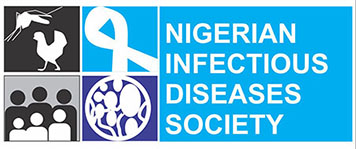The Nigerian Infectious Diseases Society (NIDS), has advocated for people to wear an alternative face mask to prevent Coronavirus spread while preserving the N95 mask for frontline workers.
Prof. Dimie Ogoina, President of NIDS made the call in an interview with the News Agency of Nigeria(NAN) on Monday in Abuja.
“To preserve medical masks for use by healthcare workers in the face of global scarcity, surgical masks and respirators such as N95 masks should be reserved for healthcare workers and those caring for suspected or confirmed COVID-19 patients.
READ ALSO :COVID-19: NBBF Postpones FIBA Technical Training Indefinitely
“NCDC recently released an advisory on the use of masks by members of the public without respiratory symptoms.
”It recommends wearing of face masks, (or equivalent) as an optional layer of protection to be used in addition to other measures such as physical distancing, hand and respiratory hygiene measures.
“Unfortunately, in spite strong advice by the NCDC about the dangers of inappropriate use and disposal of face mask, it is observed that many Nigerians are misusing face masks to protect against COVID-19,” Ogoina explained.
The president noted that the Federal, state governments, NCDC and other relevant agencies should heighten awareness on when to use, how to use and dispose of face masks appropriately.
He called on the governments to adopt a policy banning the use of medical masks by the general public except during care of a patient with respiratory symptoms.
He noted that wearing of a mask by the public was most effective at stopping the spread of the virus when compliance was high, and when used appropriately in combination with hand hygiene.
“When using face masks, the general public should always cover their noses and mouth, not to touch the front or inside of the masks, adjust and remove the masks using the straps when necessary.
”Dispose used masks in closed waste bin where available or store, used face masks safely inside a polythene bag for later disposal. Preferably, hand hygiene should be practiced every time the masks is touched,” he said.
The president further said that prevention and control of COVID-19 pandemic was rapidly evolving, and many countries were adopting measures based on emerging evidence and local applicability.
He said that where face masks use by the public had been made mandatory by a state government, sufficient quantities of homemade masks must be made available and strategies should be instituted to enable appropriate use and disposal.
“Relevant government agencies should ensure all locally produced face masks are safe, they do not affect breathing when worn, and are wide enough to completely cover the nose and mouth,” he said.
Ogoina further said that the ministries of environment in various states and the Federal Capital Territory should devise strategies to mitigate indiscriminate disposal of face masks by making provisions for covered waste bins in public spaces.
According to him, the ministries should remove used face masks from the environment, decontaminate areas and apply appropriate sanctions on defaulters where necessary.
The president added that NIDS recognized that prolonged wearing of face masks was not comfortable and appropriate use may not always be feasible outside healthcare settings.
He, however, called on Nigerians to comply with guidelines provided by the NCDC and to adopt strict social distancing measures such as staying at least two meter from other persons, avoid crowd and stay at home when use of homemade masks may not be feasible.

